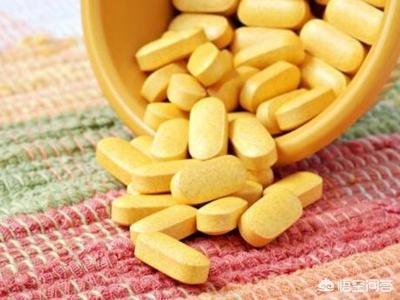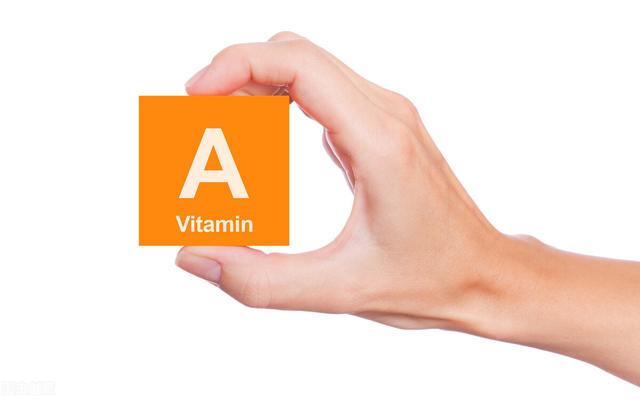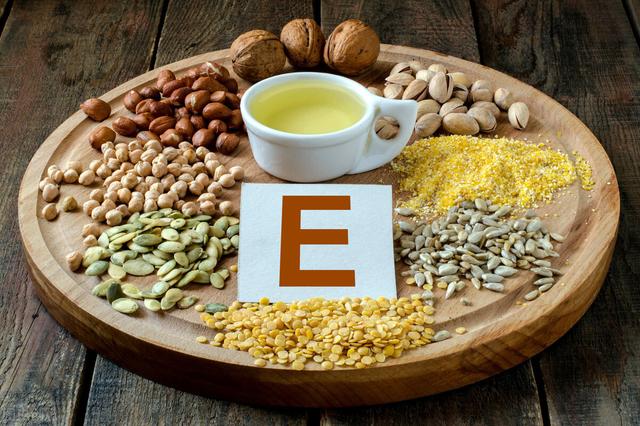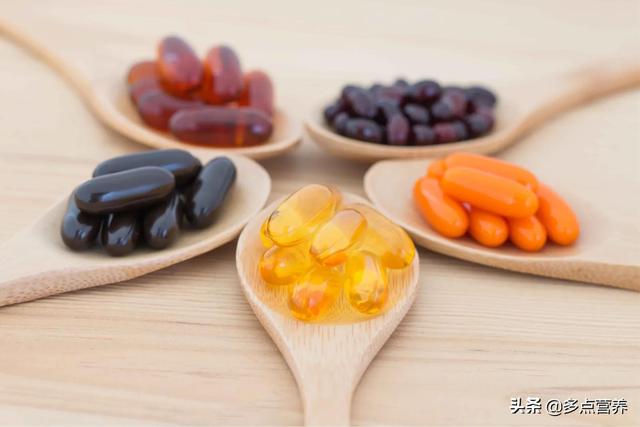Which vitamin should I take for bad skin?
There are many factors that affect the condition of the skin thatThe external environment, environmental pollution, sunlight, smoke and cosmetics, and diet have an effect on the state of the skin.
Your nutritional status directly affects the state of your skin, but it's not something that can be completely solved by simply supplementing with nutritional supplements; objectively speaking, supplementing when you are deficient can achieve the desired results, and if you are not deficient in your diet, there is little point in supplementing additionally。
Which nutrients are related to the skin.
1. Vitamin C
Vitamin C is sought after by many, not only because of its immune-boosting properties.It also promotes collagen synthesis and antioxidant scavenging of free radicals, leading to cosmetic benefits.
Common Foods:Most fresh vegetables and fruits such as dates, kiwis, peppers, radishes, cauliflower, etc.
The normal adult recommendation for vitamin C is 100mg/day, which we can easily get from vegetables and fruits.If you rarely or don't usually take them, consider taking additional supplements.
2. Vitamin A
Vitamin A helps to control the rate at which keratin collects in the skin, theDeficiency can lead to dry and rough skin.
Common foods: animal offal, eggs, milk, fish, shellfish, carrots, etc.
3. Vitamin E
antioxidant effects.Oxidizers (free radicals) can damage cells, bring on aging, and even affect the skin's metabolic capacityAnd Vitamin E provides a degree of antioxidant activity.
Common Foods: The dietary structure of Chinese people is dominated by vegetable oils, such as soybean oil, peanut oil, canola oil, olive oil, etc. TheseAll are rich sources of vitamin E, so vitamin E deficiency does not normally occur.
4. Vitamin B
Vitamin B deficiency may lead to dermatitis, seborrheic dermatitis and other conditions.
Common foods: coarse grains, lean meat, milk, peanuts, etc.
5. Zinc
Zinc is an essential nutrient for the metabolism of skin cells, and a deficiency of zinc can lead to a decrease in the production and repair of stretch marks.
Common foods: oysters, shellfish, fish and shrimp, eggs, shiitake mushrooms, portobello mushrooms, etc.
6, Sugar
Too much sugar (in many forms) that you eat on a daily basis can make your skin yellow, oily, and acne-prone.
The principle: is that sugary foods will rapidly raise blood sugar, sex hormone-binding globulin levels will drop, and will not be able to bind more of the free androgen testosterone.Testosterone may then be converted to dihydrotestosterone, leading to hypersecretion of the skin and increased oil production, which leads to bacterial proliferation, resulting in pimples or acne, among other things.
7, Water
It is recommended to ensure that you drink about 1,500 to 1,700 glasses of water per day. Dehydration affects the ability of cells to metabolize waste.Moisture is also what sets the stage for your skin to look healthy, soft, and firm.
How to eat for good skin?
To summarize the above, ensure the intake of fresh vegetables and fruits, eat a balanced and varied diet, staple food coarse and fine collocation, to avoid the lack of nutrients, so that the nutritional status is good, the skin condition is naturally good.
You can compare whether you are deficient in a certain vitamin based on your daily dietary intake and the condition of your skin.However, it is not recommended to rely solely on nutritional supplements to achieve supplementation; food is the safest and most economical source of nutrients.
Spanish jasmine (Jasminum grandiflorum):
Alcohol, cigarettes, air pollution, frying and barbecuing are all natural enemies of the skin and must be taken care of.
I hope it helps you, your likes and concerns are my greatest motivation.
What should I do if I have bad skin? In fact, our usual food can make the skin become white and tender. We often see the high value of the beauty of the sun "preservation of the secret": eat more fruits, vegetables, supplement multivitamins and so on. So what vitamins do you eat when you have bad skin?
First, vitamin A is a complex organism necessary nutrients, fall and winter lack of moisturizing the skin will always become rough, vitamin A is the best "moisturizing nutrients". It can effectively improve the skin's water-locking function, and strengthen the skin's antioxidant function, so as to maintain the skin moisture, and restore the skin's moisture and elasticity.
Second, you can eat two tablets of vitamin C and two tablets of vitamin B6 after each meal, and stick to it for a while should be better. These two vitamins are water-soluble, in the body with the metabolism will disappear, no side effects on the body. Avoid spicy and fried food in your diet.
Third, you can take some vitamin C containing tablets, which can effectively degrade melanin precipitation and play a whitening effect. In terms of diet, choose less oil, less sweet, less soy sauce food, pay attention to facial cleanliness.
The most important thing for bad skin is to take care of your body and eat healthy and nutritious food, not carrots and light-sensitive vegetables like parsley and celery.

It's really not about vitamins when it comes to good skin.
What is a good skin, we should all have a similar imaginative yearning, fair and even hydration delicate and smooth, no spots, no pimples, no scars.
Bad skin, however, is a variety of skin, including oily and acne-prone skin, sensitive and reddish skin, dull and rough skin, sagging and wrinkled aging skin, blotchy and unevenly pigmented skin, and so on. Each type of bad skin has its own cause of occurrence and improvement treatment. Vitamins must not be a one-size-fits-all prescription.
Our body's metabolism and the maintenance of various physiological functions require a complete and balanced supply of vitamins. Skin that functions properly and does not look bad also needs the support of various vitamins. The more important ones are:
1, vitamin C, can enhance the denseness of capillaries, reduce their brittleness, but also promote the growth of granulation tissue and wound healing, but also inhibit melanin synthesis, that is, skin whitening effect.
2, vitamin E, very important is the antioxidant effect, scavenging oxygen free radicals, etc., we can understand the anti-aging effect, but also enhance the skin capillary resistance.
3, vitamin A, is necessary to maintain healthy epithelial tissue, can maintain the integrity of the skin results function. If the lack of, will cause the skin sweat gland sebaceous gland atrophy, dry skin, rough keratinization.
In addition, vitamins B1, B12, vitamin D, vitamin B6, B2, and vitamin PP (niacin) are essential.
Dermatologist I will just give you a clinical example, sometimes we come across chronic alcohol addicts who have been eating alcohol instead of food for years, and the niacin deficiency that occurs as a result of chronic vitamin insufficiency, with the formation of large, dark red patches on exposed areas of the skin under ultraviolet radiation, is very characteristic.
The skin not only stores a lot of fat and water, but also proteins, sugars, vitamins, etc., these substances are involved in the metabolism of the whole body, so when the body's metabolism is impaired, the normal metabolism of the skin will also have an impact, resulting in the occurrence of certain skin diseases, and vice versa, the skin metabolism disorders, the metabolism of the whole organism can also cause a great impact ~ skincare products have been from the external application of the internal take The age of skin care products has moved from external application to internal consumption, such as oral hyaluronic acid and collagen! If the first cause of skin aging is UV rays, the second is insufficient moisture! Insufficient moisture not only causes fine lines, but also accelerates the aging of muscle cells! The medical effectiveness of oral hyaluronic acid is unproven because most of the hyaluronic acid is absorbed in the small intestine and broken down into tiny monosaccharides, so it's hard to tell if it's working on the skin, and the same goes for vitamins! Studies have shown that only 7% of vitamin C consumed will act on the skin! However, collagen contains amino acids that are normally difficult to get from food, so if you take it with vitamin C, it works even better!
Food is abundant and it is human nature to love to eat! But if you can do moderation, to do a reasonable balance, is the performance of will eat! Food contains five major nutrients, in which the five major nutrients, three have been introduced, protein, fat, carbohydrates, and contains calories, only these three nutrients! In addition to these three nutrients, there are also mineral nutrients and vitamins that do not contain calories, but still have a very strong relationship with our body's metabolism! For example, Vitamin B, also known as the B vitamins, are mainly Vitamin B 1, Vitamin B 2, Vitamin B 6, Vitamin B 12, etc. Among them, herbalists say that Vitamin B 1 is known as the vitamin of the spirit, which has a certain impact on our nervous tissue and mental state, while Vitamin B 6 is involved in tryptophan, sugar, estrogen metabolism, and B 12 is responsible for the nucleic acid and amino acid metabolism, as well as the management of the body's integrity of the nervous system! Coarse grains such as millet, oats, buckwheat, whole wheat bread, etc., in addition, minimize alcohol can also reduce the loss of vitamin B 1! If you are a diabetic, often because of insulin resistance, the body incorrectly believes that the blood glucose is insufficient, we must fat and protein breakdown to generate blood glucose, this process will consume a lot of B vitamins! The carbohydrates that a person eats, the staples, are directly converted to glucose, the only fuel the brain needs! Many people slim down by controlling the amount of food they eat and choosing low-calorie foods, which results in fewer calories but also a reduced, if not no, intake of vitamins and mineral nutrients! Vitamins and mineral nutrients are substances that are very important to the body's metabolism and are essential nutrients for body fat burning! Processed foods, which are basically deficient and which also contain a lot of preservatives, colorants, chemical flavorings and other additives, can add a great burden to digestion and absorption in our bodies!
Vitamins are organic compounds that are necessary for biological functions and cannot be synthesized by the body! Vitamin deficiencies can manifest themselves on different systems of the body, but their effects on the skin are more obvious! While the root cause behind severe dry skin may be more than simply a vitamin deficiency, understanding those vitamins that are necessary to maintain the health of the body's skin will help each individual with a skin problem and plan a more sensible diet to help the skin regain its health! There are several vitamins and nutrients that are essential for the health of the human body and the health of the skin, such as vitamins A, D, C, E, B ,Potassium, etc. Bright, healthy, moisturized skin relies on a balance of many vitamins and nutrients, and in order to maintain a good body, including moisturized skin, we need to follow nutritious diets to meet the needs of each individual for a well-rounded diet! For example, vitamin C can be antioxidant, and aging and disease are mostly the result of oxidation, fruits and vegetables are an important source of vitamin C, but Vitamin C is particularly susceptible to oxidation, therefore, the regular vitamin C are to be packed in dark-colored bottles, is to maximize the likelihood of avoiding oxidation caused by sunlight! Statistics show that Chinese people's intake of vitamin C is among the highest in the world, folic acid, vitamin B 12 and so on and bubble or pharmaceutical vitamin C at the same time to take can affect its function, need to be staggered at least 2 hours!
Reference
I'm @DrHuangClass and I'm here to answer your question.
The healthy state of the skin, and vitamin intake has a close relationship, the following several vitamins have their own effects and functions, quickly see which one you need to supplement.
Here are 3 vitamins that are good for skin health
Point 1: For moisturized skin - Vitamin A
We all know that vitamin A is useful for eye and vision maintenance. But apart from that, it is also responsible for regulating the metabolism of the skin's stratum corneum. If we are deficient in vitamin A, our skin is prone to abnormal keratinization, dryness and peeling, leading to blackheads and acne.
To avoid these problems, we can eat more carrots, mango, pumpkin, broccoli and other supplements. But don't supplement too much, normal people only need 5,000 IU of VA per day, oversupplementation will not only make the skin flaky, hair loss, and even toxic.

Point 2: Want to whiten, anti-aging - vitamin C
Vitamin C is a well known antioxidant. It is a water-soluble vitamin that eliminates free radicals in the body, and in maintaining skin health, it is also anti-aging, whitening, and promotes collagen synthesis, which is essential for improving the skin's ability to store and lock in water.
There are many foods rich in vitamin C. The fruits we often eat: fresh dates, kiwi, sea buckthorn, hawthorn, oranges and tangerines contain a lot of it. And vegetables such as green peppers, bitter melon, cauliflower, etc., also contain considerable amounts of vitamin C.
Only, vitamin C is structurally unstable and can be easily destroyed by oxidation, heat damage, and by light. Therefore, the vitamin C-rich foods mentioned above should be eaten raw whenever possible, and the effectiveness of vitamin C supplementation will be greatly reduced if they are cooked for too long.
Point 3: Want antioxidant - Vitamin E
Vitamin E has antioxidant properties that are up to 100 times more powerful than vitamin C. It is found in nature, mostly mixed with oil-rich foods, such as nuts and olive oil. This is a protective vitamin secreted by plants to protect oils from oxidation. If the vitamin E in these oils is depleted, the fats tend to rancidize.
Eating plenty of vitamin E forms antioxidant components on the surface of the skin, protecting it from UV damage. In addition to eating, there are many creams rich in vitamin E that do the same thing.
To get a vitamin E supplement, we should eat fresher products rich in fats and oils whenever possible. This includes vegetable oils, peanut rice, olive greens, and more.

In addition to vitamins, essential fatty acids are needed for moisturized and plumped skin
The outer layer of our cells has a cell membrane made up of lipids, which locks in the water inside the cells, keeping the skin cells from losing water and drying out.
The lipids that make up cell membranes are mostly made up of essential fatty acids that the body lacks. We can replenish them by eating more deep-sea fish, nuts, sunflower seeds and sesame seeds.
However, lipids are high-calorie, to ensure that the daily intake of 35g can be, eat more, then you should increase the amount of exercise to consume, otherwise it is easy to body shape.
Follow me for the science of becoming more attractive.
Bad skin simply take vitamins may not be effective, hospital-prescribed OTC vitamins are not recommended for long-term consumption, vitamin tablets are mainly used for adjuvant therapy.
You can take different vitamins for different problematic skin:
Vitamin A: rough, dry skin
Vitamin B2: xerostomia, seborrheic dermatitis
Vitamin B3: (niacinamide) oral for pellagra, oral tablets not for topical use, niacinamide gel for skin whitening
Vitamin B5: topical application to repair the skin barrier
Vitamin B6: acne, seborrheic dermatitis
Vitamin C: whitening, but not for vitiligo patients.
Vitamin D: Anti-allergy
Vitamin E: Oral anti-aging, light spots, external use to remove acne marks, light scars.
Damaged skin barrier function can be repaired by choosing skincare products that contain ceramide ingredients, and try to choose medical cosmeceutical brands.
To skin condition is good, usually also have to pay attention to sun protection, avoid spicy stimulating diet, avoid fried abstain from sugar, regular work and rest, can not stay up all night, keep moving, every day good mood can make the skin better.
I hope the above helps.
Bad skin is not necessarily clinically necessary to take vitamins. For example, some skin allergic skin diseases, including some psoriasis, and some systemic diseases, not necessarily related to vitamin A deficiency or vitamin deficiency, but there are also some patients with vitamin deficiencies, but also easy to lead to bad skin. For example, some patients are deficient in vitamin A, or vitamin B2 deficiency this kind of patients are prone to lead to some skin diseases.
Vitamin B: a total of eight kinds of vitamin B, the skin beauty only vitamin B2 and vitamin B6, it can prevent skin aging, skin pigmentation and freckles have a certain preventive effect, facial seborrheic dermatitis and dry and itchy skin, it is recommended that the appropriate take vitamin B2 will be of some help, the following foods are rich in vitamin B2: animal liver, eggs, cereals, beans.
Definitely eat multivitamin tablets ah, bad skin is too generalized, vitamin A, vitamin B3, vitamin C, vitamin E can affect the skin, recommended that you eat Townsend BeiJian multivitamin mineral tablets (Ms. type), this for the Chinese women's body to create, the effect is better.
Vegetables and fruits with vc and vE.
Bad skin can be seen as a result of endocrine disorders, which are very much related to endocrine disorders, and bad skin is often an outward sign of endocrine disorders. Bad skin caused by endocrine disorders mainly includes facial dullness, chloasma, acne, rough skin, and oily skin.
According to Chinese medicine, chloasma on the face is mostly caused by stagnation of qi and blood, deficiency of qi and blood, and deficiency of liver, spleen and depression. Acne is mostly caused by heat in the lungs and stomach, heat in the liver meridian, and dampness-heat within the body, which is mostly related to dampness-heat in the liver and spleen, phlegm and stasis.
If there are some facial areas of fever, peeling, dryness and many other symptoms, consider that there may be a facial for the seborrheic dermatitis, for this case, if you want to choose to use vitamin treatment, it is recommended that you can choose to oral vitamin b1, vitamin b6 and vitamin b12, for this case, can effectively improve the symptoms of the whole skin, and with some topical hyaluronic acid gel, can make the skin back to normal. This can restore the skin to its normal condition.

This question and answer are from the site users, does not represent the position of the site, such as infringement, please contact the administrator to delete.